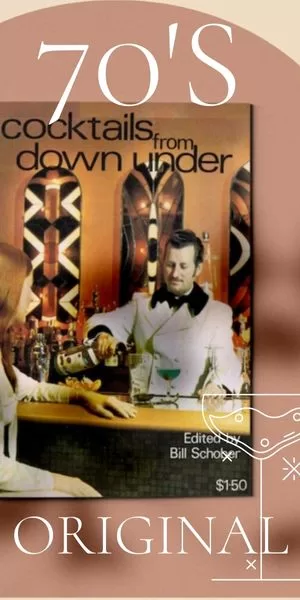“Only 1 in 5 Aussies believe that councils make composting easy”
Key highlights:
-
70% of Australians place high importance on disposing of items in the correct council provided bin.
-
Almost half of Australians (45%) believe that cost-of-living does not impact their ability to prioritise recycling or composting.
-
One third of Australians claim to undertake composting (majority backyard) and over half of Australians express interest in home composting in the future.
-
Only 1 in 5 Australians believe their council makes composting easy for them.
-
Only 1 in 10 Australians were able to recognise the industrially compostable and home compostable logos – few people understood the true meaning of the logos.
-
70% of respondents state they will now look for these compostable logos on the packaging of everyday items.
New research reveals that the majority of Australians want to bin packaging correctly, yet confusion over composting and recycling logos, as well as a lack of support from councils, remain a challenge – “with only 1 in 5 Australians believing their council makes composting easy for them”.
Research conducted by the Government backed initiative Compost Connect, and backed by Australian B Corp BioPak, surveyed 1,003 Australians across the country to understand consumer attitudes and behaviours towards compostable packaging (such as takeaway food containers), waste and recycling.
Key findings uncovered that 70% of Australians place a high importance on disposing of items in the correct council provided bin and almost half of Australians (45%) believe that cost-of-living does not impact their ability to prioritise recycling or composting.
Data further revealed that a significant number (one third) of Australians claim to undertake composting (majority backyard) and over half (53%) of Australians express interest in home composting in the future – showing a growing interest and trajectory for compostable packaging solutions to help aid Australia’s current waste crisis.
A key barrier identified from the report showed that many Australians feel unsupported by their councils with confusion over disposing of rubbish in the right kerbside bin, with only 1 in 5 Aussies believe that councils make composting easy.
The research revealed that average Australians want comprehensive disposal guide stickers (52%) on bins, printed informational brochures (42%) and one-on-one information sessions from councils (18%). It was recognised that brands also have a role to play, with 41% of respondents wanting more disposal information on packaging.
BioPak CEO and Compost Connect board member, Gary Smith, commented on the urgent need for a unified approach from the Federal government, councils and the Environmental Protection Authorities (EPAs) of each state.
“Our data shows that Aussies are very keen to do the right thing, but there are some significant roadblocks, especially with regards to restrictions and legislation from a council, government and EPA standpoint,” said Smith.
“On a federal level, the ambiguity and lack of a holistic approach to waste disposal is still a key obstacle for many Australians. We are witnessing great success in such progressive states as South Australia, where councils are showcasing how achievable it is for compostable packaging to be included in green FOGO kerbside bins.”
“The success of Rundle Mall’s pilot scheme is another nod to the viability of this waste model and a recent report further shows that, overall, compostable packaging has had a marginal impact on South Australia’s current commercial and residential organics recovery systems. It is our hope that other state Environmental Protection Authorities and councils may follow suit and invest in composting infrastructure and education.”
Another key challenge identified was the recognition of compostable and recycling logos – with only 1 in 10 being able to identify the universal industrial and home compostable logos and 43% being able to identify the ARL recycling logos. It was acknowledged that Australians are looking for more practical visual cues and resources to help educate and remind them.
A positive takeaway from the report shows a swift change in consumer behaviour, with the majority of respondents (70%) confirming that they would now look out for compostable logos in the future as a reference point on how to dispose of compostable packaging correctly.
“With only 9% of the world’s plastic being recycled, education and adopting circular solutions is critical,” Mr Smith continued.
“We are working hard and collaborating with individuals, business leaders, policy makers and industry bodies to build a comprehensive library of resources that helps people understand the benefits of composting and the role compostable packaging plays in fighting the war on waste. It really does start with awareness and education, and it is our mission to continue to spark conversations that call for action and change.”
Dr Thava Palanisami, Associate Professor from the University of Newcastle and Team Leader at Environmental Plastic Innovation Cluster (EPIC), commented on the findings of the report.
It is truly wonderful to see that consumers’ perspectives and behaviours are being actively discussed, as they play a crucial role in determining the future of sustainability initiatives,” said Dr Palanisami.
“It is heartening to witness the growing interest among Australians in composting and recycling – their willingness to adapt and make environmentally conscious choices is a significant step toward creating long-term strategies that focus on the circular economy and protecting the environment.”
Compost Connect is a not-for-profit platform committed to education, lifting composting rates, and connecting foodservice businesses to commercial composters. This new research launches their new campaign “Compost for Climate” to help educate and share a range of resources to help individuals make informed decisions that put the planet first.
To view the full report, please click here.
For more information on Compost for Climate, please visit: https://www.
For more information on Compost Connect, please visit: https://www.
Enjoy reading Eco Voice? Please help us by purchasing a GIFT Voucher or send one to a friend and encourage people to purchase trees or seeds via The Native Shop – www.nativeshop.com.au
Plants, seeds & more delivered to your door!
www.nativeshop.com.au
Advertisement




